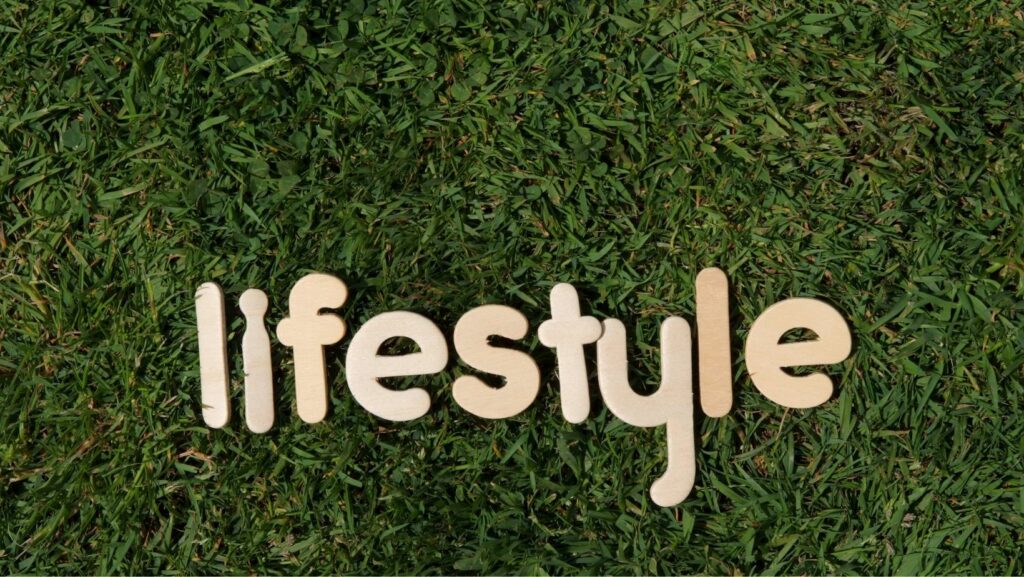Meanwhile, technology continues to weave itself into our homes. Smart homes are no longer a novelty but an expectation. With advancements in AI and IoT, our homes are becoming more connected and intelligent. This tech-driven Lifestyle Trends 2023 is set to make waves.
Lifestyle Trends 2023
As environmental concerns are taking centre stage, people are increasingly aligning their lifestyles with more sustainable practices. This shift isn’t limited to a small group of eco-activists, it’s now a widespread trend touching every aspect of daily life from food to fashion. With a predicted increase in climate change awareness by 2023, sustainability is becoming a significant part of the overall Lifestyle Trends 2023 change.
One major area where these sustainable living trends are making an impact is household products. Consumers are moving away from single-use plastics and investing in reusable, eco-friendly products. From beeswax wraps replacing cling film to bamboo toothbrushes standing in for their plastic counterparts, small changes are collectively creating substantial impacts.

Many have also embraced zero-waste practices, proving it isn’t a passing fad but a commitment to lifestyle overhaul. Zero-waste grocery stores are cropping up across towns and cities, and more people are composting kitchen waste at home. These practices not only reduce landfill contributions but also promote a closer relationship between humans and their environment.
Sustainable fashion is another area experiencing a significant shift. Fast fashion’s environmental impact is finally being recognized, and the demand for sustainably made clothing is on the rise. Upcycling, thrifting and buying from local ethical brands are transforming our wardrobes and the fashion industry at large.
Eco-Friendly Products and Practices
The shift toward sustainable living isn’t just about the clothes people wear, but also about the products they use and the habits they form. Eco-friendly products are becoming a staple in households around the world. Made from renewable resources and often sporting recyclable packaging, these products have a dramatically lower environmental impact than their conventional counterparts.
The market is filling up with a plethora of “green” alternatives. From organic food to ethical cleaning products, manufacturers are answering the demand for environmentally responsible options. Producers are also increasingly focusing on the lifecycle of their products. It’s not just about what goes into making a product, but also what happens to it once it’s discarded. As a result, many green products are designed with end-of-life in mind, being either compostable, recyclable or refillable.
Next are sustainable practices, they go hand in hand with the use of eco-friendly products. This includes habits like recycling, reducing plastic use, composting, and utilising reusable shopping bags. Embracing these practices is no longer seen as extraordinary but increasingly the norm. These trends showing a motion towards a more sustainable world are also evident in the rise of shared economies and services, such as bike-sharing schemes and shared workspaces, which are at their heart resources that reduce waste and promote sustainability.

Zero-Waste Movement
The Zero-Waste Movement isn’t just a trend, it’s becoming a lifestyle setting its foot firmly in mainstream culture. Driven by the core principle of minimising waste, it encourages reusing, recycling, and composting, to divert waste away from landfills and incinerators. It’s estimated that in 2023, the number of people following the zero-waste lifestyle will continue to rise, markedly contributing to the reduction of the global waste volume.
The burgeoning movement has given rise to a plethora of services and products designed to combat waste generation. The zero-waste market offers a wide range of sustainable alternatives such as reusable shopping bags, compostable kitchenware, and packaging-free toiletries. The paradigm shift in consumer behaviour is accelerating the elimination of single-use plastics, with an emphasis on products that have a post-consumption life plan.
Another trend encapsulating the zero-waste lifestyle is shared economies. They offer easy access to goods and services without the need for individual ownership, essentially “sharing” among multiple users. Shared economies deter the throw-away culture, promoting use over ownership.
Shoppers’ enthusiasm for sustainable consumption is fueling the rise in zero-waste brick-and-mortar stores and online platforms. These establishments provide unpackaged bulk goods, allowing consumers to buy precisely what they need, minimising both food waste and packaging waste.
Several innovations are steering the zero-waste lifestyle into being more achievable and accessible. Rapidly progressing, the technology sector is launching applications facilitating the transition towards this lifestyle. These eco-focused apps help users track their carbon footprint, educate on recycling dos and don’ts, and locate zero-waste stores, promoting an environmentally responsible lifestyle.



